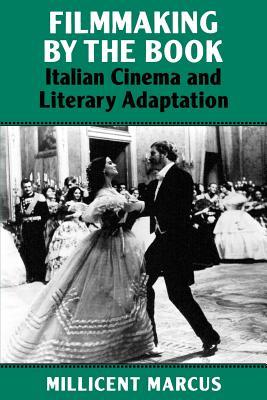What is the impulse to transform literary narrative into cinematic discourse, and what are the factors that determine that transformation? In Filmmaking by the Book, Millicent Marcus considers the adaptive process as the sum total of a series of encounters: the institutional encounter between literary and film cultures, the semiotic encounter between two very different signifying systems, and the personal encounter between author and filmmaker--sometimes involving an overt Oedipal struggle for selfhood.
Marcus explores that process by looking at key works by such major postwar Italian filmmakers as Visconti, De Sica, Pasolini, Fellini, and the Taviani brothers. Drawing on the methodologies of semiotics, psychoanalysis, feminism, and ideological criticism, she finds that cinematic imaginations typically employ literary texts self-consciously to resolve specific artistic problems. Each of the filmmakers studied here define their own authorial task in relation to that of the literary precursor, and insert "umbilical" scenes or "allegories of adaptation" to teach viewers how to read their cinematic rewriting of literary sources.
